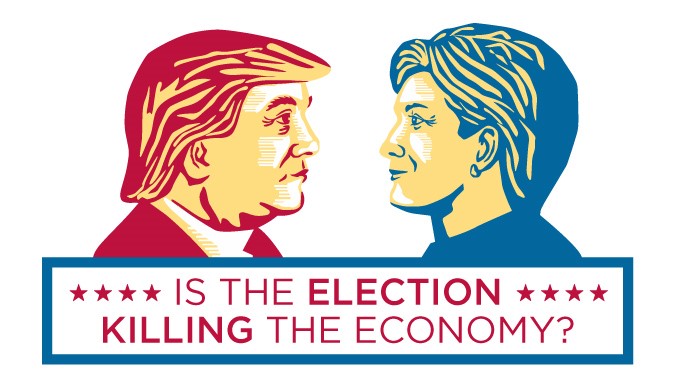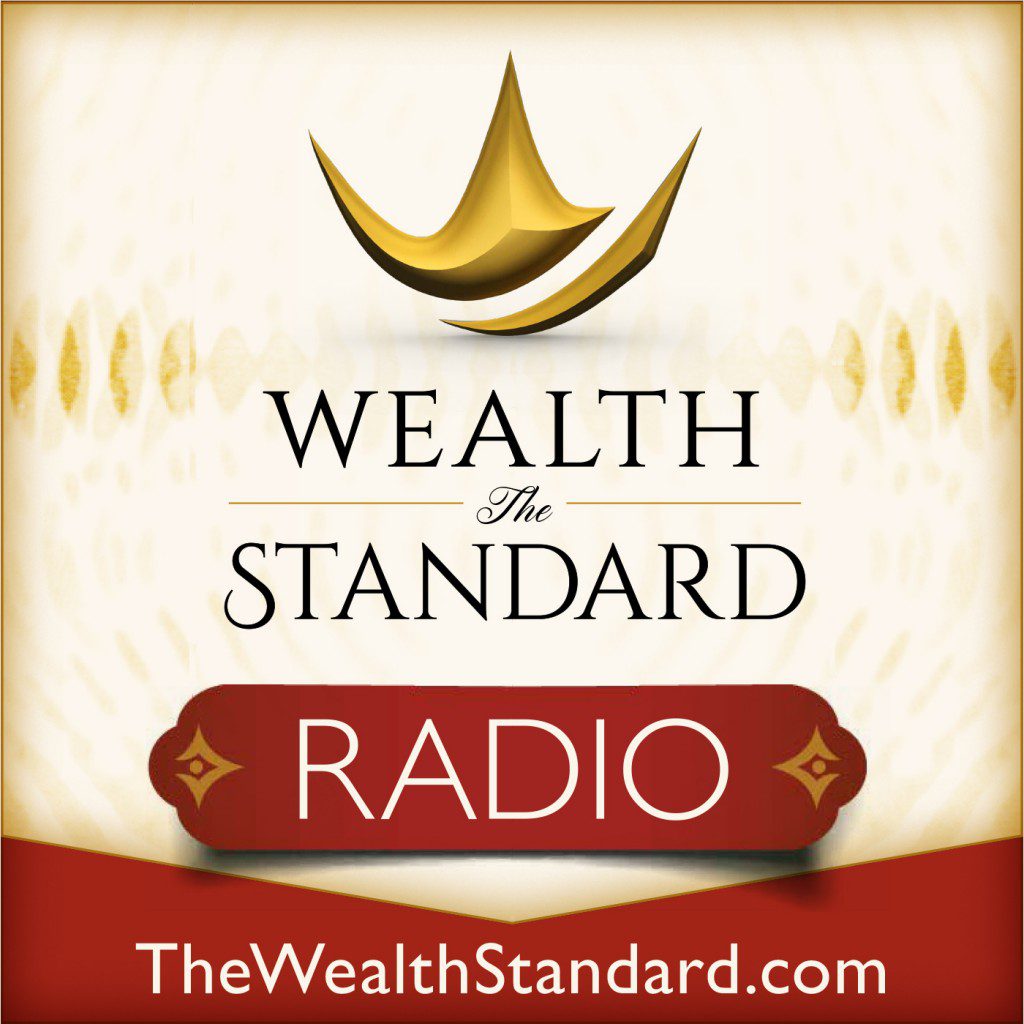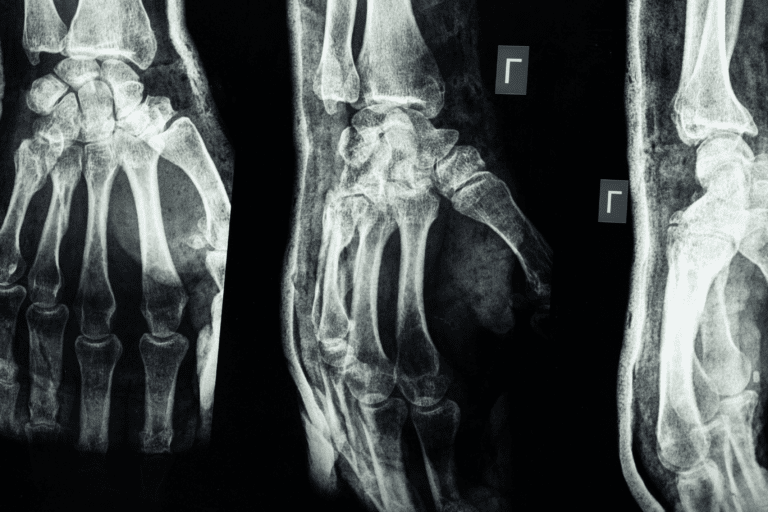As campaigning winds down and “We The People” get ready to go to the polls, Americans realize that even if the president can’t wave a magic wand and immediately create change, a vote for a candidate is an opportunity to say, “This person will take this country in the best direction.” In an especially polarized election year, the uncertainty affects us all through its degree of uncertainty. Many of us are stressed or worried, and that makes us reluctant to spend or invest until we find stability. To help ease some of the election tension, we want to answer a couple of questions. First, “What impact does an election year have on the economy?” and second, “What impact does each candidate intend to have on the economy?”
If there’s one thing that creates volatility in the market it’s the unknown. And this election has offered plenty of surprises. What does that mean for the economy, the market, and possibly your financial picture? Take a deep breath. Though the wacky election year has affected the mindset of consumers—making us leery of spending, any sluggishness caused directly by the election is likely minimal. Other factors like Brexit and The Federal Reserve have had a much larger impact on the slow growth we’ve experienced this year.
Though there’s no crystal ball or statistical formula predicting a correlation between the election and market performance, we encourage you to learn as much as you can and draw your own conclusions. It’s best to find data from unbiased sources that aren’t manipulating it to show a relationship between apples and oranges.
So, what about when a new president gets into the White House? Both candidates’ have promised to increase jobs and kick-start growth, and their policies would influence the U.S. in vastly different ways. Here’s a very high-level summary of each candidates’ plans and what they think it will do for the economy—you get to figure out if their plans will achieve their desired results.
Trump
- • Boost economic growth by revising the tax code and trade policies to make it easier to hire, invest, build, grow, produce, and manufacture in America. Renegotiate NAFTA (North American Free Trade Agreement) and cut unneeded regulations.
- • Call for tariffs on goods from Mexico and China to encourage U.S. consumers to buy goods produced in America.
- • Create 25 million jobs over a 10-year period and achieve annual economic growth of 3.5%. More jobs will put more money in the hands of workers who spend and stimulate the economy.
Clinton
- • Boost economic growth with tax cuts to the middle class and small businesses, helping students refinance college debt and pay tuition, and allocate money to improve the country’s infrastructure. Raise taxes for those with incomes over $5 million a year.
- • Create fair growth by raising the minimum wage to $15 an hour, encourage business to share profits with employees, and invest in students and teachers.
- • Support long-term growth by raising short-term capital gains taxes for those earning $400,000 or more a year.
Many promises and proposals are made during any election. Luckily, these promises filter through Congress, and that’s where we assume checks and balances take place. Simplify the impact of these promises by thinking back to your high school student body officer elections. Just because Eddie promised free soda fountains in the lunchroom doesn’t mean it actually happened, but you probably totally voted for that.
Despite the differences, both candidates agree that they would support ending corporate inversion (transactions where U.S. companies move their corporate headquarters abroad to avoid taxes), eliminating carried interest tax (a tax that mostly benefits hedge fund investors), and opposing the Trans-Pacific Partnership (TPP).
Again, if you’re concerned at all about the economy, our recommendation to voters is to take a serious look at what The Federal Reserve is doing to manipulate the economy. It’s short sighted to link one president or a political party with market responses. Every president approaches the issues at hand. Politics is a team sport and everyone claims their team is better. Ultimately, the role of any president is as a leader who ideally brings people together.
We are committed to helping you learn more about the economy and personal financial strategies. Our mission is to help you build wealth outside of Wall Street with certainty, liquidity, and control—so regardless of who becomes president your future is secured. We want to give you more details about the Perpetual Wealth Strategy and how it can help you get started in real estate investments. We invite you to take 2 minutes to sign up for a FREE, extensive eCourse called Infinite 101®. You’ll receive access to video tutorials, articles, and podcasts. It literally costs you nothing to become educated on this ideal financial strategy and start changing your wealth paradigm!
Take advantage of this FREE resource by clicking below.









